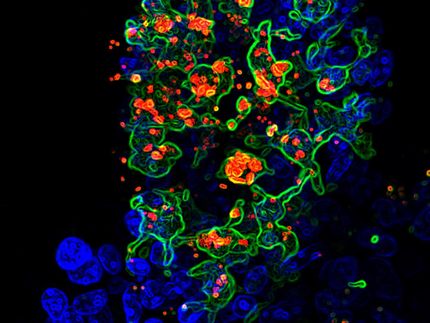New 'adjuvant' could hold future of vaccine development
Advertisement
Scientists at Oregon State University have developed a new adjuvant that could allow the creation of important new vaccines, possibly become a universal vaccine carrier and help medical experts tackle many diseases more effectively. adjuvants are substances that are not immunogenic themselves, but increase the immune response when used in combination with a vaccine.
However, due to concerns about safety and toxicity, there's only a single vaccine adjuvant – aluminum hydroxide, or alum – that has been approved for human use in the United States. It's found in such common vaccines as hepatitis B and tetanus. But even though widely used, alum is comparatively weak and will only work with certain diseases.
The new adjuvant is based on nanoparticles prepared with lecithin, a common food product. In animal models, it helped protein antigens to induce an immune response more than six times stronger than when alum was used. Researchers also showed that the lecithin nanoparticles were able to help induce a reasonable antibody response after only one shot, whereas it took at least two shots for the alum adjuvant to work.
Based on their studies, researchers believe the lecithin nanoparticles have wide potential applications and possibly a good safety profile. Their findings were just published in the Journal of Controlled Release, a professional journal in the field of pharmaceutics, in work supported by the National Institute of Allergy and Infectious Diseases.
"In many cases, to make progress with vaccine development we need new adjuvants," said Zhengrong Cui, an assistant professor of pharmaceutics at OSU and corresponding author on the new study. "The material has to be safe, and lecithin is a common food product that's already widely used in pharmaceuticals. This new form of using lecithin nanoparticles as an adjuvant is promising and could become very important."
Vaccine development has always been difficult and at times controversial, Cui said, because of concerns about adverse effects when giving vaccines to healthy people.
Because of that, the U.S. Food and Drug Administration has been conservative about approving new vaccine adjuvants, he said. But even the safety issue is complex – to help avoid risk, new vaccines are based on purified compounds from microbes, but these provoke a very weak immune response and often need an adjuvant to boost them. Vaccines could be made based on dead or live attenuated microbes, but that would have a higher level of risk. The ultimate solution is new and improved adjuvants that help address both concerns about safety and efficacy. Another problem, he said, is that the alum adjuvant that is common in some U.S. vaccines has very limited value in the development of many potential vaccines against viruses or tumors.
By contrast, the lecithin-based nanoparticle adjuvant is more effective. The extraordinarily small particles move easily to the lymphatic system that plays a key role in development of immune response, and they physically "look like" a pathogen to the immune system, which quickly gears up to fight them.
"Our early studies with laboratory animals seem to suggest that a vaccine based on the lecithin nanoparticle adjuvant would not only be more effective, but be tolerated by the body more readily than one using alum," Cui said. "Lecithin is very non-toxic, it's one of many compounds 'generally recognized as safe' by the FDA, and at the injection site we saw none of the nodules and tissue hardening you sometimes see with vaccines that use alum."
If the new adjuvant is ultimately shown to be safe and is approved following clinical trials, Cui said, it could become the basis for a revolution in the production of vaccines and serve as a universal carrier.























































